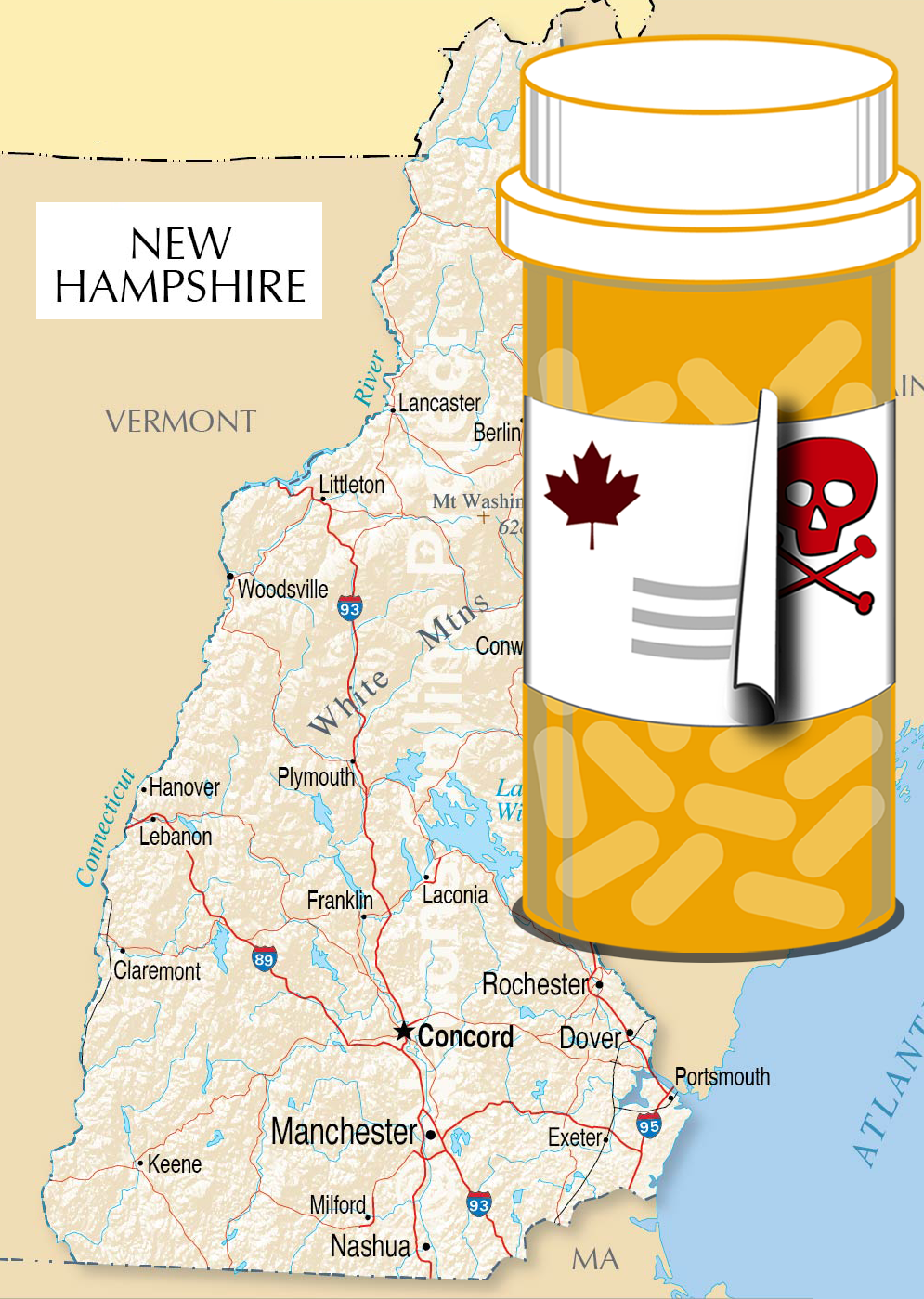Drug Importation in New Hampshire: An Overview

Current status:
New Hampshire submitted an application for its state importation program in April 2021. The FDA rejected the application in November 2022 because it did not identify a Canadian wholesaler that would provide the drugs.
Synopsis:
In January 2020, the New Hampshire legislature introduced SB685, which would require the New Hampshire Department of Health and Human Services to design a wholesale importation program for prescription drugs from Canada by or on behalf of the state and obtain federal approval for the program. In June 2020, SB685 was added to HB1280, which included several other prescription drug initiatives. The bill was signed into law in July 2020.
How should we evaluate this program?
The program hasn't started yet, or even been designed, so there's no way to measure whether it saved money or kept patients safe, both promises made at the time of passage. However, the 2003 Medicare Modernization Act contains requirements for safety requirements built into any such program.
Official actions and statements
November 2022: FDA denies the application.
April 2021: New Hampshire submits an SIP application.
HB1280: Text of the Bill
SB685: Text of the Bill | New Hampshire State Senate hearing
Testimony opposing SB685:
- The Best Medicines Coalition, January 21, 2020
- The Partnership for Safe Medicines, January 2020
Background / resources
Learn more about
Op-eds from the Experts
In her October 18, 2017 editorial for the Las Vegas Sun, Liz MacMenamin, vice president of government affairs for the Retail Association of Nevada, offers facts about drug importation:
Though this may appear as a simple and innocent fix to the problem of high drug prices, the reality is starkly different. Importation threatens the safety of all Americans and the security of the United States’ airtight pharmaceutical quality control system.
As PSM’s Board President, Dr. Marv Shepherd, wrote in an editorial for the Washington Examiner that was published on October 10, 2017, opening the United States to unregulated, imported drugs will offer fentanyl traffickers even more access to Americans:
“The reality is that criminals throughout the illegal supply chain from China to the streets of U.S. cities are making money at the cost of American lives. We need to be taking steps to eliminate illegal fentanyl from our communities, not providing new avenues for those who want to see just the opposite happen.”
Paul Honeman is a former Anchorage Assemblyman representing East Anchorage. He also is a retired Anchorage Police Department Lieutenant. In this September 28, 2017 editorial in The Bristol Bay Times, he highlights the dangers posed by drug importation and reminds everyone why it is currently banned…
CNN’s September 25, 2017 Healthcare Town Hall was an opportunity for prominent senators to share important ideas about ways to improve Americans’ lives, but it also included some erroneous statements about drug importation. PSM’s Board President, Dr. Marv Shepherd, sent this letter on September 29 to clarify those issues.
The Nevada Sheriffs’ and Chiefs’ Association sent a letter to Senator Heller explaining their reasons for opposing S. 469, the bill that would allow drug importation…
Russell Withers, general counsel at the Texas Conservative Coalition Research Institute in Austin, believes that drug importation is “neither affordable nor safe.” In a September 20, 2017 editorial in the Austin-American Statesman , he argues that “it would hurt U.S. and Texas businesses, workers and patients’ and urges Texan congress members to oppose it.
In early July, European authorities reported that counterfeit versions of Omnitrope, a drug containing human growth hormone, were found in France, Denmark, and Mexico. The counterfeit Omnitrope was designed to look like it was made by a large drug manufacturer, but it contained no active ingredient. Shortly thereafter, German authorities announced that a fake version of a schizophrenia drug, Xeplion, was discovered in Germany. The Xeplion was also a knock-off, mimicking packaging used in Bulgaria and Romania.
These incidents are the latest in a stream of reports about counterfeit drugs throughout Europe. The problem lies in lax security of the supply chain — distributors, middlemen and wholesalers between the drug maker and the consumer. Despite ongoing problems with the EU drug supply chain, Congress is currently considering a bill that would open the U.S. to imports from the EU and elsewhere. We can’t have a serious debate about drug importation without understanding what is going on in Europe.
Health policy expert Kenneth Thorpe weighs in on the dangers of drug importation in this August 23, 2017 editorial in U.S. News & World Report:
“…these savings could come at the cost of Americans’ lives. Legalizing drug importation would make it far easier for harmful counterfeit and contaminated medicines to enter the U.S. drug supply. At a time when illegal, counterfeit drugs already cause hundreds of American deaths every year, importation represents a reckless way to cut health care costs.”
Mari Serebrov, the regulatory editor for biotechnology news site BioWorld, offered this opinion about drug importation on August 4, 2017.
“On the surface, importing drugs from Canada seems like a no-brainer,” she writes, “especially when the Canadian version is virtually the same drug as the one approved by the FDA for the U.S. market – except a whole lot cheaper. But there’s the rub. How can Congress ensure that drugs imported from Canada are all that they claim to be?
While more than 40 countries have or are implementing security measures to protect their drug supply chain, Canada’s not one of them, Brian Daleiden, vice president of industry marketing at Tracelink Inc., told BioWorld. That puts importation – from Canada, at least – on a collision course with the U.S. Drug Supply Chain Security Act (DSCSA), which Congress passed in 2013 as part of the Drug Quality and Security Act.”
The Daily Herald published this editorial by Dr. Terry Sellers about the shortcomings of drug importation as policy on July 25th, 2017. Sellers is a Utah-based physician specializing in addiction.
“… price is not the same as cost,” he writes, “In this case, cheaper prices will impose tremendous costs that would adversely affect the future of medicine for generations to come.”








